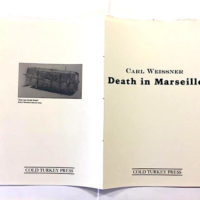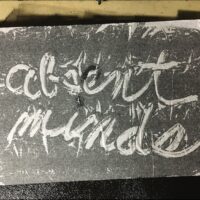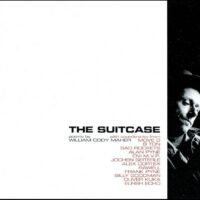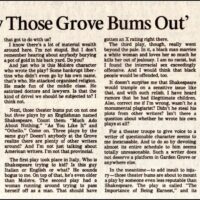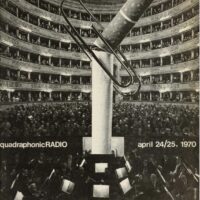In several media — photography, video, poetry and live performance — Signe Mähler and William Cody Maher will introduce a world in which the personal and the universal intersect and mirror one another. The pair will explore how the story of a married couple can echo both global events and private memories — using the past as a lens to see and understand the present.
Archives for June 2025
In Berlin
Steff Signer: Cabinet Music XI
Concept & Music: Steff Signer * Photography: Mario Baronchelli *
Acrostic Poetry: Florian Vetsch * Cornet Introduction: Markus Breuss *
Poetry Recitation: Jaswant Hanspal
Remembering Janine Pommy Vega
She’ll get a street named for her in New Jersey, where she was from. The last time I saw Janine was on the Lower East Side at the Bowery Ball Room in Manhattan, for a reading to celebrate a book of poems by migrant farmworkers, “Estamos Aquí,” which she had translated. One of her last messages to me, dated 6/19/2007, arrived not long after. It could have been written yesterday.
William Wyler, an Old Favorite, Speaks About Film
Well, of course he’s a favorite. See “A Talent for Trouble.”
Channeling Rimbaud’s Last Words
The last words of Arthur Rimbaud as imagined by Carl Weissner was published in a limited handmade edition. It is a small masterpiece — small only because it isn’t longer.
‘Talk Dirty to Me’
Postmodern Jukebox is a helluva pick-me-up for any day of the week.
‘absent minds’ / ‘patient spring’ / ‘biting elbows’
Here are three of the images under consideration for a chapbook entitled ‘biting elbows,’ to be made from a collaborative effort by Gerard Bellaart and myself during a visit to his studio in Le Liboreau, France.
‘Burning Bridges’
The poet says he’s “in the business of burning bridges.” That’s not all the business he’s in.
‘Throw the Bums Out’
Given the Trump regime’s hostility to the arts and humanities, it seems useful to recall that the antagonism was characteristic of local politicians on the right for many years before MAGA came along to voice their resentments on a national scale. This is perhaps too obvious to point out. But even so . . .
This Was My Song — It Is Ours Now More Than Ever
Long, long ago — in 1970 to be precise — the Berkeley radio station KPFA borrowed a collage of mine for the cover of its guide. I had titled it “This Is My Song,” thinking of it as an obituary for the 1960s.





